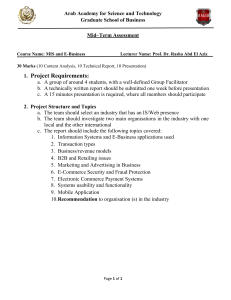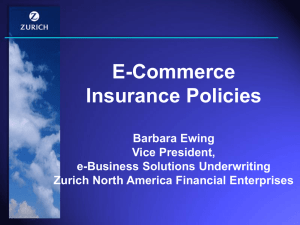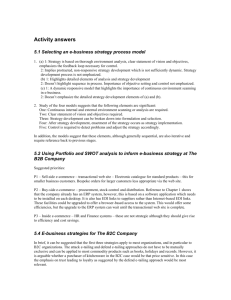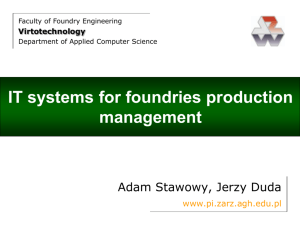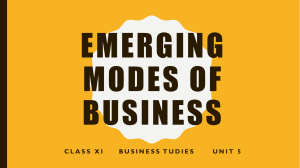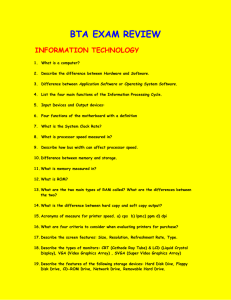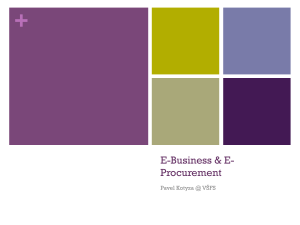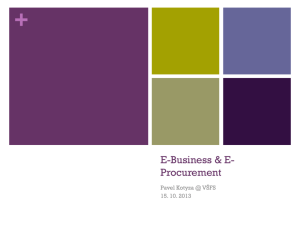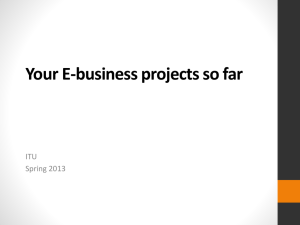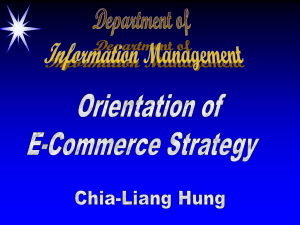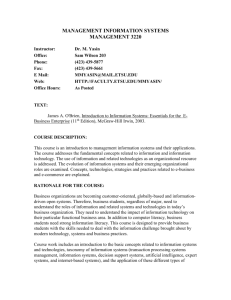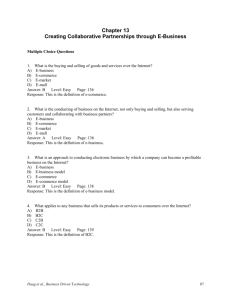Final Review Sheet
advertisement
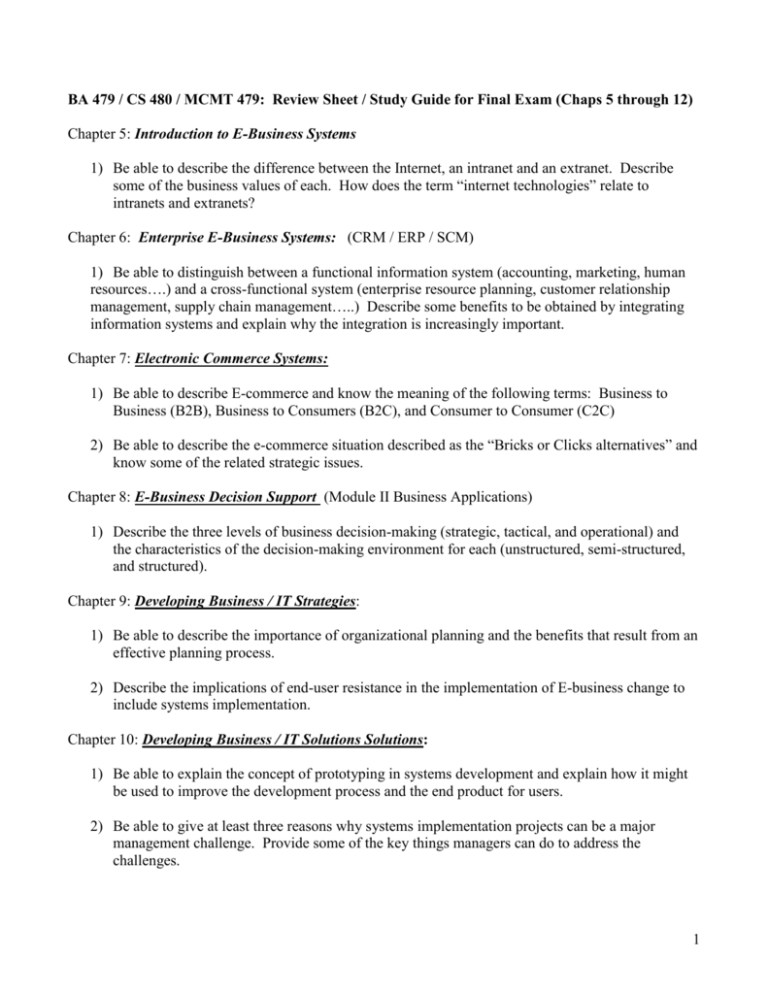
BA 479 / CS 480 / MCMT 479: Review Sheet / Study Guide for Final Exam (Chaps 5 through 12) Chapter 5: Introduction to E-Business Systems 1) Be able to describe the difference between the Internet, an intranet and an extranet. Describe some of the business values of each. How does the term “internet technologies” relate to intranets and extranets? Chapter 6: Enterprise E-Business Systems: (CRM / ERP / SCM) 1) Be able to distinguish between a functional information system (accounting, marketing, human resources….) and a cross-functional system (enterprise resource planning, customer relationship management, supply chain management…..) Describe some benefits to be obtained by integrating information systems and explain why the integration is increasingly important. Chapter 7: Electronic Commerce Systems: 1) Be able to describe E-commerce and know the meaning of the following terms: Business to Business (B2B), Business to Consumers (B2C), and Consumer to Consumer (C2C) 2) Be able to describe the e-commerce situation described as the “Bricks or Clicks alternatives” and know some of the related strategic issues. Chapter 8: E-Business Decision Support (Module II Business Applications) 1) Describe the three levels of business decision-making (strategic, tactical, and operational) and the characteristics of the decision-making environment for each (unstructured, semi-structured, and structured). Chapter 9: Developing Business / IT Strategies: 1) Be able to describe the importance of organizational planning and the benefits that result from an effective planning process. 2) Describe the implications of end-user resistance in the implementation of E-business change to include systems implementation. Chapter 10: Developing Business / IT Solutions Solutions: 1) Be able to explain the concept of prototyping in systems development and explain how it might be used to improve the development process and the end product for users. 2) Be able to give at least three reasons why systems implementation projects can be a major management challenge. Provide some of the key things managers can do to address the challenges. 1 3) Be able to explain why business professionals and IS specialists use a systems approach to developing IS solutions. 4) Understand the 5 steps of the Traditional Systems Development Lifecycle. 5) Know the difference between economic, technical, operational and organizational feasibility 6) Be able to describe the difference between tangible and intangible benefits of a proposed systems implementation. 7) Know some of the types of software that are normally associated with end-user development of applications. 8) Be able to describe systems conversion methods (parallel, pilot, phased, plunge) and provide advantages and disadvantages. Chapter 11: Security and Ethical Challenges: 1) Identify several ethical issues surrounding the increased use of information systems in organizations (employment, individuality, working conditions, privacy, health etc) 2) Be able to describe a Firewall and explain its purpose. Why does the use of a firewall always involve access and security tradeoffs? 3) Be able to talk about who has responsibility for ensuring that appropriate plans and procedures are in place for computer security and disaster recovery. 4) Explain the role of business leaders in minimizing the negative effects of organizational information technology decisions. 5) Be able to explain why a company might be well-advised to exercise its legal right to monitor email traffic on the company network. Chapter 12: Enterprise and Global Management of E-Business Technology: 1) Explain some of the ways that globalization has made IT management more difficult. Discuss some cultural, political, and geo-economic factors. Key Terms (all chapters): Prototyping Disaster Recovery Plan E-Business / E-Commerce Applications Enterprise Resource Planning Types of Feasibility Encryption Intranet / Extranet Customer Relationship Management B2B / B2C / C2C Firewall Software Piracy Electronic Business Supply Chain Mgmt 2
